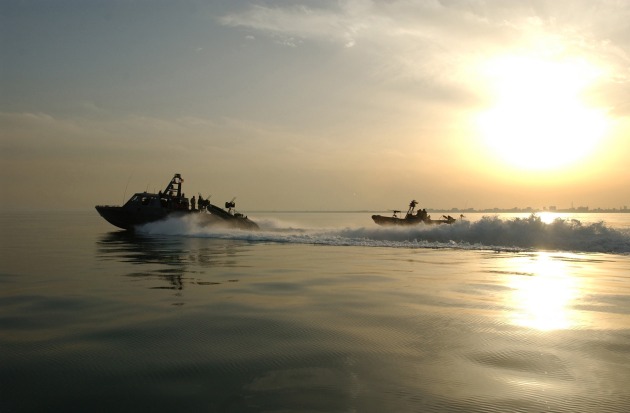Special Warfare has always been interested on mitigating the physical injuries incurred from high-speed boat transits but are there short-term consequences that can limit a SEAL’s ability to perform once he’s on shore?
Anyone who has spent time on a boat understands how draining a day on the water can be. Most watersport enthusiasts write it off as a consequence of dehydration sourcing the water’s amplifying affect on the suns rays. However, an article in the European Journal of Applied Physiology might renew interest on some of the unavoidable physiological consequences related to military high-speed boat transits.
Researchers, utilizing a series of physical fitness activities kept track of muscle breakdown during a 3 hour 40 knot transit in a moderate-to-rough sea state. What they found was the participants in the study did incur a slight decrease in exercise performance but no significant degradation of muscle. These findings demonstrate how the pounding of the waves can wear on muscles similarly to what a cyclist goes through during a single leg of the Tour de France but there is still more to learn.
Although, it’s doubtful any of the Royal Marines involved in the study felt their time on water diminished their ability to function. They might have felt differently if the transit was followed by a lengthy foot patrol, commonly performed by special operations forces during insertion.
The question “can a boat transit weaken SEALs” seems to depend on a number of issues the researchers didn’t address but one thing is for sure, the possibility exists.


Leave a Reply
You must be logged in to post a comment.